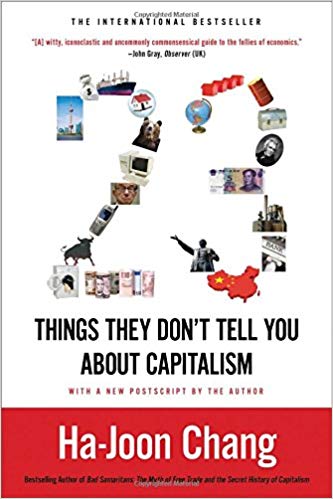
Article Artículo
Trump's Cabinet’s Business Connections Will Leave Workers DisappointedAn interview with Dean Baker, by Yongin Yi
The Hankyoreh, January 19, 2017
Dean Baker / January 19, 2017
Article Artículo
NYT Gets It Wrong: Davos Elite Is Totally Fine with Protectionism, In Spite of Its Hit to Economic GrowthCEPR / January 19, 2017
Article Artículo
Latin America and the Caribbean
Trump y América LatinaAlexander Main / January 18, 2017
Article Artículo
The Economics of the Affordable Care ActDean Baker
Institute for New Economic Thinking, January 17, 2017
Dean Baker / January 18, 2017
Article Artículo
Inflation Shows Little Evidence of AcceleratingJanuary 18, 2017 (Prices Byte)
CEPR and / January 18, 2017
Article Artículo
The NYT and Davos: Why Would We Look for Policy Guidance from the Super Rich?CEPR / January 18, 2017
Article Artículo
Republican Part-Time Nation: Going InvoluntaryDean Baker
Truthout, January 16, 2017
Dean Baker / January 17, 2017
Article Artículo
Latin America and the Caribbean
A Blow to Brazilian Democracy: The Illegitimate Removal of Dilma Rousseff from PowerAlexander Main / January 17, 2017
Article Artículo
The Housing Bubble Was Not Hard to See (Except for Economists)CEPR / January 17, 2017
Article Artículo
Is Tom Price Opposed to Protectionism for Doctors and Patent Monopolies on Drugs?CEPR / January 17, 2017

book Libro
23 Things They Don’t Tell You About CapitalismHa-Joon Chang / January 17, 2017
Article Artículo
Health Care Spending as Share of GDP Under Obama: One Year Makes a DifferenceCEPR / January 15, 2017
Article Artículo
Headline Repair Service: Food Stamp Households Do Not Disproportionately Consume Soft DrinksCEPR / January 14, 2017
Article Artículo
El gabinete de criminales de Donald TrumpDean Baker
The Huffington Post México, 14 de enero, 2017
Dean Baker / January 14, 2017
Article Artículo
David Brooks Hasn't Heard of the Affordable Care ActDavid Brooks has apparently not heard of the Affordable Care Act (ACA) since he thinks he is providing new information in telling readers that markets can work in health care. If he was familiar with the law, then he would realize that the ACA was quite explicitly designed with the idea that patients should share in costs, and therefore have incentives to seek lower cost care.
As a practical matter, this has not worked out very well, since patients tend not to do comparative shopping for health care services. This means that giving them more control does little to hold down health care costs. A recent study by the Rand Corporation found that patients with high deductible plans did spend less on health care but also tended to avoid recommended preventive procedures such as cancer screenings. Since this was a relatively short-term study, it did not include the higher long-term costs that may result from patients not receiving preventive care.
It is worth noting that Brooks seems uninterested in ways in which obstacles to a well-working market may raise costs but also raise the income of highly paid people. For example, in most markets there is very little competition between insurers. This means that patients have few options if their insurers give them a bad time paying bills — in effect stealing patients' money. (Personal note: I had to spend two hours on the phone, in three separate calls, to get my insurer [United Health Care] to pay a bill that was for a procedure that was completely standard, prescribed by my doctor, and obtained at an in-network provider. The value of the time I wasted, and that other patients must waste, are not generally included in calculations of health care costs.)
CEPR / January 14, 2017